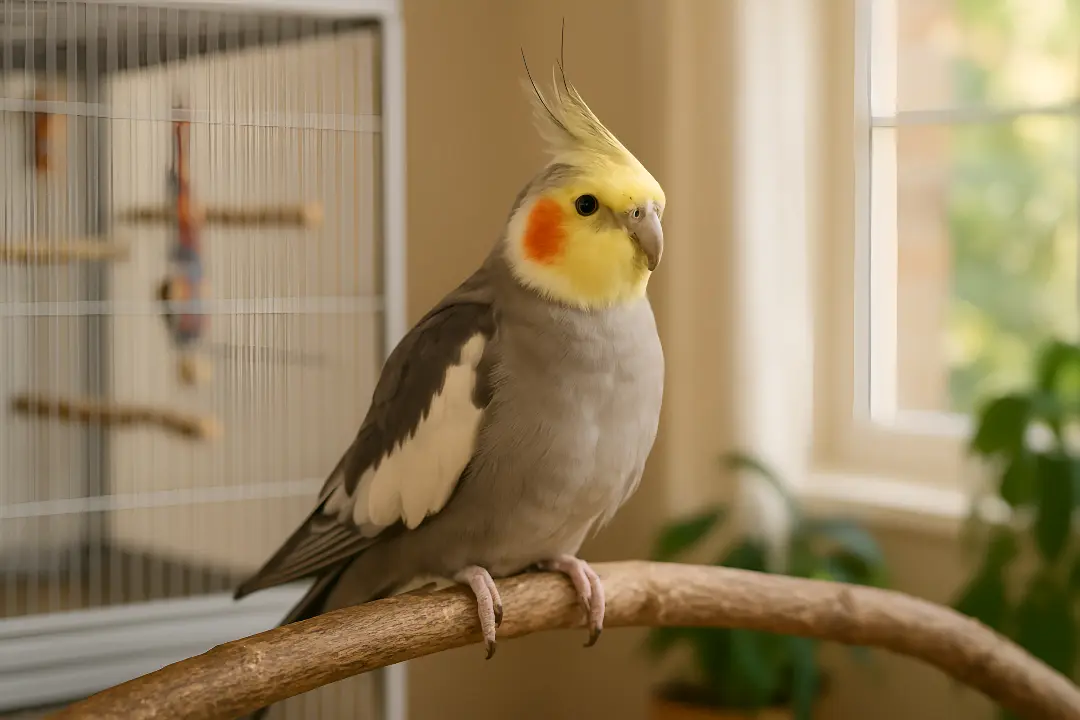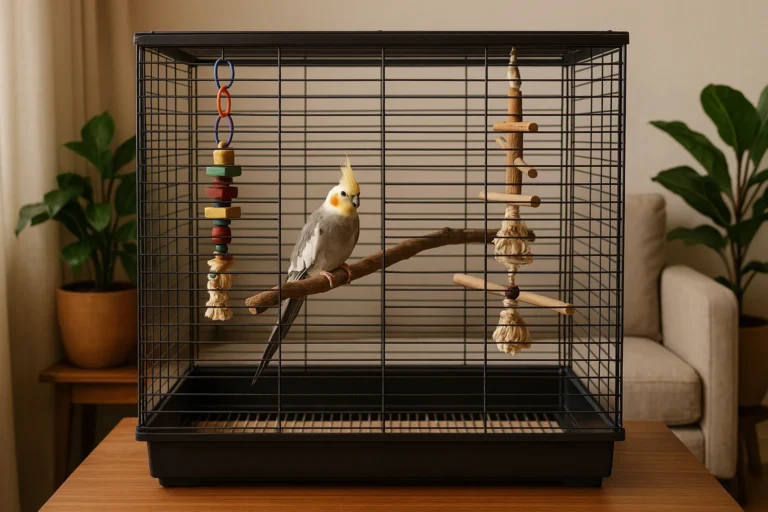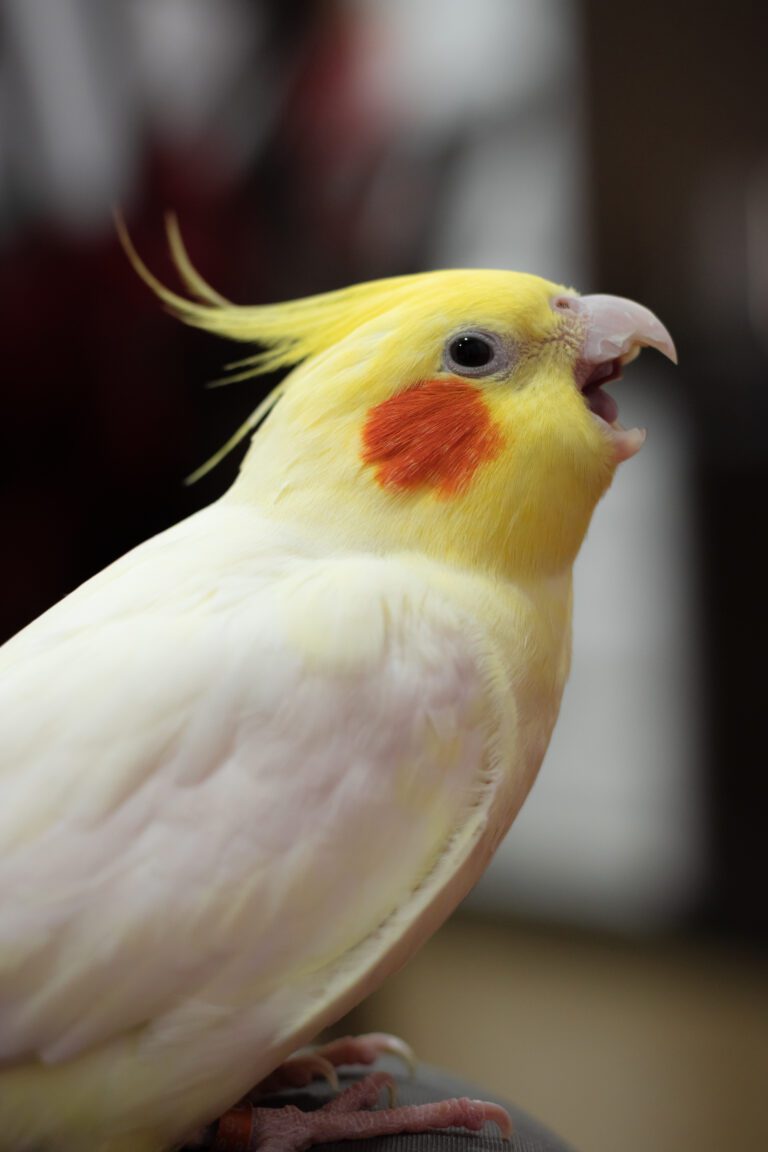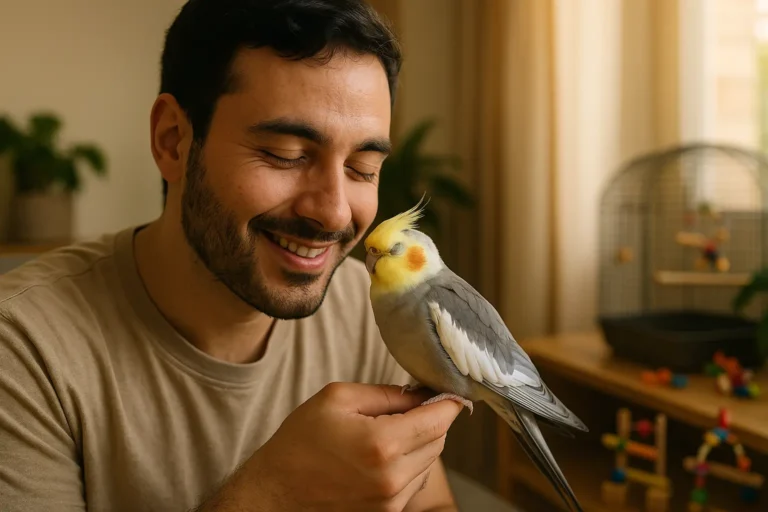How Long Do Cockatiels Live? Lifespan Secrets Revealed
When I brought home my very first cockatiel, I had no idea how long we’d be together. I remember asking myself, “How long do cockatiels live?” and if you’re here, maybe you’re wondering the same thing. As a long-time cockatiel breeder, I’ve learned a lot over the years about what helps these sweet little birds live longer, healthier lives.
Understanding your cockatiel’s lifespan is more than just curiosity it helps you prepare, care, and build a strong bond that can last for decades. In this post, I will walk you through how long cockatiels live, what affects their lifespan, and how to keep your bird happy and healthy for as long as possible.
How Long Do Cockatiels Live?
Let’s answer the big question right away: How long do cockatiels live? On average, pet cockatiels can live 10 to 20 years when properly cared for. Some even live up to 25 years or more! In the wild, their lifespan is shorter, usually around 5 to 10 years because of predators, harsh weather, and food shortages.
That means if you give your cockatiel the right kind of home, food, and attention, you could be spending two whole decades with your little buddy. I have personally had several cockatiels live past the 20-year mark, and each of them brought so much joy to my life. It’s incredible what love and care can do for these birds.
Here’s a quick look at cockatiel lifespan:
-Type of Cockatiel and Average Lifespan
-Pet (with good care): 15–20 years
-Wild Cockatiels : 5–10 years
-Oldest Recorded : 36 years
Factors That Affect Cockatiel Lifespan
There are many things that can affect how long your cockatiel lives. Some of them are out of our hands, like genetics, but many are completely within our control. Over the years, I noticed that a cockatiel’s environment, diet, daily care, and even emotional well-being can all have a huge impact on their overall lifespan.
How Genetics Affect Cockatiel Lifespan
Just like people, cockatiels takes traits from their parents. If a bird comes from a healthy, well-cared-for bloodline, it is more likely to live longer. I noticed that hand-raised cockatiels from responsible breeders tend to be healthier than aviary-bred birds that don’t get much human interaction or early care. Hand-raised birds are often more social and better adjusted to life in a home, which makes caring for them easier and more effective from the start.
While you can’t change your bird’s genetics, choosing a reputable breeder who focuses on health and proper socialization gives your cockatiel a strong foundation.
How Diet Impacts the Lifespan of Cockatiels
What your cockatiel eats plays a HUGE role in how long they live. I saw birds thrive when they eat a balanced diet and struggle when they’re fed only seeds. In addition, many new bird owners make the mistake of offering only seeds, thinking that’s what cockatiels eat in the wild. But in reality, a diet of just seeds can lead to obesity, fatty liver disease.
A healthy cockatiel diet should include a variety of foods like quality pellets, fresh vegetables (such as carrots, spinach, and broccoli), fruits like apples and berries, and the occasional serving of whole grains. It’s also important to make sure they always have access to clean, fresh water.
Avoid feeding your bird anything toxic like chocolate, avocado, alcohol, caffeine, and salty or sugary snacks. A good diet can easily add several years to your cockatiel’s life.
Creating the Best Environment to Help Your Cockatiel Live Longer
The space your cockatiel lives in every day has a big impact on their health. A small, dirty, or stressful environment can lead to sickness, boredom, and even early death. On the other hand, a clean, roomy, and joyful space can help your bird stay active and happy.
Make sure your cockatiel has a large enough cage where they can stretch their wings, climb, and play. The cage should be cleaned regularly to prevent bacteria and illness. Also, provide perches, swings, ladders, and toys to encourage movement and exploration. Keep the cage in a quiet, safe area with good lighting but no drafts or direct smoke.
Your cockatiel also needs enough rest around 10 to 12 hours of sleep every night. I cover my birds’ cages at night to help them feel secure and ensure they get uninterrupted sleep.
A clean environment is key, but don’t forget that a well-tamed cockatiel will feel even more at ease. If you’re wondering how long it takes to tame a cockatiel, check out my guide on How Long Does It Take to Tame a Cockatiel?.
Exercise and Mental Stimulation
Cockatiels are not just cute they’re smart and full of energy. They need exercise and things to do, or they can become bored and depressed. Bored cockatiels are more likely to develop bad habits like feather plucking or screaming.
My birds get time outside the cage every day to fly around a bird-safe room. I also rotate their toys weekly and teach them little tricks to keep their minds sharp. Mental and physical stimulation helps keep their bodies fit and their brains busy.
Without enough stimulation, your cockatiel may become stressed, which can shorten their life.
Regular Vet Checkups
One of the most important things I do for my cockatiels is take them to the vet every year. Even if they look healthy, birds are great at hiding symptoms of illness. A yearly checkup with an avian vet can catch health problems early, which gives you a better chance of treating them before they become serious.
Some common illnesses in cockatiels include respiratory infections, fatty liver disease, and Psittacosis. Watch for signs like fluffed-up feathers, odd droppings, changes in appetite, or a quieter than usual bird. If you see anything off, don’t wait get them to a vet.
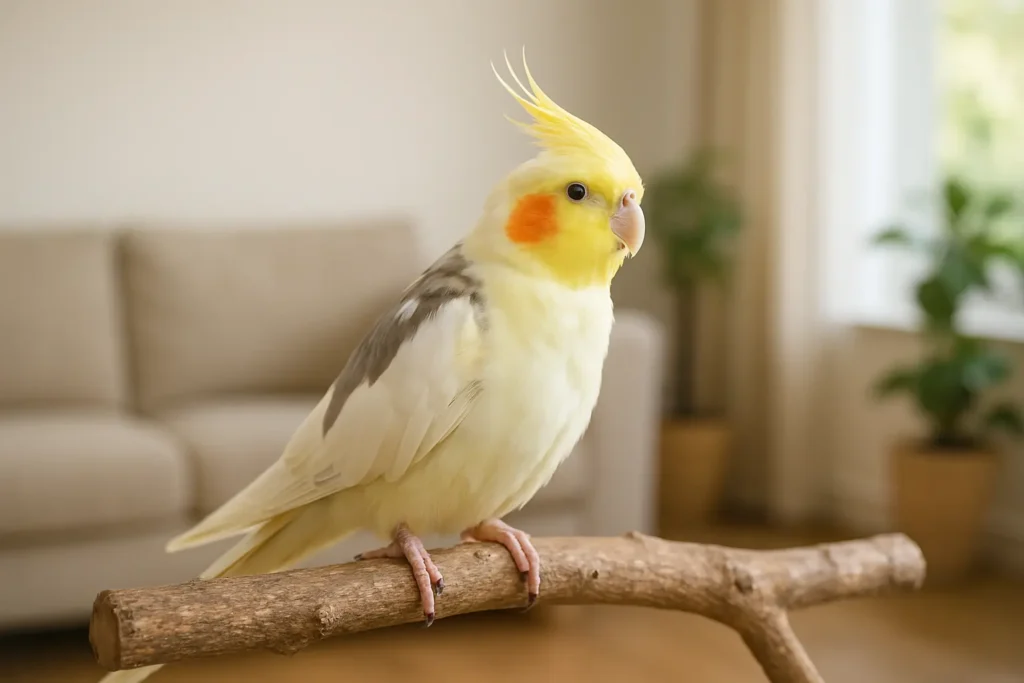
Lifespan Secrets Revealed: Tips to Help Your Cockatiel Live Longer
Over the years, I discovered a few simple but powerful things that make a big difference in how long a cockatiel lives. Here are my top tips:
– Feed a balanced diet with fresh veggies, fruits, and quality pellets.
– Avoid seeds as the main food source they should only be a treat.
– Provide a spacious, clean cage with joyful items like toys and perches.
– Let your bird fly in a safe room for exercise.
– Offer mental energizing through toys, tricks, and time with you.
– Make sure your cockatiel gets enough rest each night.
– Schedule regular checkups with an avian vet.
– Spend time bonding with your bird every day they need love and attention.
Doing these things consistently will not only help your cockatiel live longer but also give them a better quality of life.
Wild vs. Pet Cockatiels: Who Lives Longer and Why?
In the wild, cockatiels have to deal with a lot of challenges. There are predators, food shortages, diseases, and tough weather conditions. Because of all this, wild cockatiels usually live between 5 and 10 years.
In contrast, pet cockatiels live in a safe, stable environment. They have regular meals, medical care, protection from predators, and loving owners. This is why pet cockatiels often live 15 to 20 years or even longer.
I had cockatiels live past 20 years, and one of my birds made it to 23. With good care, there’s no reason your cockatiel can’t be with you for a long, happy time.
Common Myths About Cockatiel Lifespan
There are a lot of myths out there about how long cockatiels live. Let’s clear a few up:
– “Cockatiels only live 5 years.” This is not true. With proper care, many live 15 to 20 years or more.
– “Seeds are all they need.” Seeds lack nutrients and lead to health problems. Pellets and fresh foods are a must.
– “If they look fine, they’re healthy.” Birds hide illness very well. Always get yearly vet checkups.
– “Toys aren’t necessary.” Mental energizing is just as important as food. Bored birds get sick or stressed.
Knowing the facts helps you give your bird the best life possible.
Signs Your Cockatiel Is Aging
As cockatiels get older, they show it in little ways. I have seen my senior birds slow down, take more naps, and become a bit quieter and lazy. Their feathers may not look as bright, and they may not fly as much.
Other aging signs include:
– More time resting or sleeping
– Slower reactions or movements
– Weight changes (loss or gain)
– Beak and nail overgrowth
It is important to pay attention to these signs and make adjustments like softer perches or more gentle handling. And of course, keep up those vet visits to catch anything serious early.
Final Thoughts on How Long Do Cockatiels Live
So, how long do cockatiels live? The simple answer is 15 to 20 years on average but with love and great care, they can live even longer. As a breeder who has had the joy of raising many cockatiels, I can say these birds are full of personality, and they truly become part of your family.
By giving your cockatiels the right food, environment, attention, and health care, you’re giving them the best shot at a long, happy life.
If you found this helpful, be sure to check out my other posts on cockatiel care, diet, and taming tips. Let’s keep those feathers fluffed and those hearts happy!
FAQs About Cockatiel Lifespan
Q: Can cockatiels live 30 years?
Yes, it’s rare but possible! With excellent care, some cockatiels live into their 30s. The oldest recorded cockatiel lived to 36 years.
Q: What’s the oldest recorded cockatiel
The oldest known cockatiel lived to be 36 years old. That’s an incredible age and shows what great care can do.
Q: Do male or female cockatiels live longer?
There’s no big difference between the sexes. Lifespan is more influenced by diet, environment, and veterinary care than gender.

